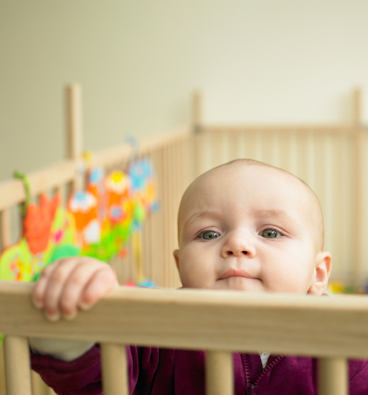Newborns - About Your Newborn
Brain Development

Babies love to look at faces and within a few months your child will be able to recognize your face. He will also be able to follow moving objects with his eyes and learn to look for hidden objects when he cannot see them.
Young infants also like to look at colourful objects. As your baby gets older, her eyesight will improve and she will soon be able to recognize different sizes and shapes.
While your baby is dependent on you for everything, she is busy watching and learning about her world. Your baby needs you to show her that her world is safe and that you will provide the care she needs. One way to do this is to respond to your baby's cries by comforting her with touch – cuddles and hugs – this will let her know that she is safe and loved. It's also very important to feed your baby when he is hungry and change his diaper often so he is comfortable. Consistently responding to your baby's needs with love and care will teach him that his parent will provide the love and support he needs.
- Baby Brain Development: Video
- Your Child's Brain
- Your Child's Brain Structure
- Cognitive Development – 6-9 Months
- Cognitive Development – 9-12 Months
- Attachment Network of Manitoba
- A Young Child's Assessment and Diagnosis
As a parent watching your child grow, questions may come up about whether your child's development is typical of children the same age. You may wonder about signs that indicate a developmental delay or disability. - For Parents of a Child with a Disability
This fact sheet provides information to parents on practical things they can do to support their children with disabilities. - Services and Programs for Children
Click this link for information on specialized services and programs for children with disabilities.
